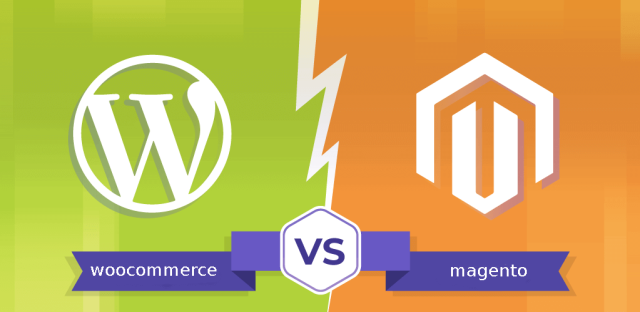The choice of an e-commerce platform is one of the oldest and most important choices that one can take in the case of opening an online company. Magento and WooCommerce are the two brands, which are very popular and dominate the online retail market. The advantages of both platforms are difficult to ignore yet the choice of one platform or the other greatly depends on the size of your company amount of financial resources it has and the long term objectives. With the knowledge on the differences between the woocommerce vs magento you will make an informed decision on the type of platform that is most befitting depending on the needs of your brand.
Magento vs. WooCommerce
The best between the woo commodities and Magenta will depend on the business depending on the size and requirements of the business.
In cases of stores where traffic is high, the Magento Enterprise solutions have good functionality, scalability, and even security.
Configuration and User Experience
When what matters most is the speed of deployment and ease of use, then it is evident that WooCommerce is the choice. The process of deployment is simple just like any WordPress module and therefore users can easily activate and set up their own store within a few simple steps. WooCommerce is user-friendly and beginner-friendly to the brands that run on the do-it-yourself model, and when no qualified developer is available in the team.
Magento has a more difficult skill curve, even though it has more limitations. To create and set up a Magento store, it is often necessary to hire a specialist or have technical experience. Having a strong control over every aspect of the operations of the shop and its experience with clients, the backend is more complex yet more comprehensive.
Personalisation and Adaptability
The WooCommerce vs. Magenta is a fascinating comparison to make by analysing the customisation features. Using stock tools, payment gateways, users are capable of enhancing their business. The excessive reliance on the third-party plugins, however, can occasionally lead to compatibility problems or poor performance.
Magento also has a greater number of customization choices than just aesthetic modifications. Brands are able to personalize item lists, payments and even more complex price strategies. The platform supports integrations of an enterprise, localization, and multi-store.
Scalability and Performance
Page speed and scalability are also critical factors that determine the success of your store especially when the traffic is increased. WooCommerce though relies heavily on the quality of hosting, it can be used successfully with small and medium stores. The right hosting company can support thousands of products with WooCommerce; but, beyond that point, there may be performance problems unless a lot of optimisation is performed.
The design of Magento is important in terms of scalability. It is capable of managing many store views, high order quantities without compromising its performance and extensive product catalogues. In order to support the international e-commerce business, Magento is more than a high-performance hosting, yet after the installation is through, it can support the process quite easily. In the case of a bigger business, Magento is certainly more future-proof in terms of future development.
Cost Factors
Budget is a very important consideration when selecting a platform. These add-ons do not make WooCommerce among the most affordable alternative to startups and small businesses.
Magento exists in two versions; Magento Commerce (Enterprise) and Magento Open Source. Although free to install, the open-source edition can be many times more costly to develop, support, and directly host than WooCommerce is. Whereas enterprise editions are costly to license, they offer cloud hosting options, dedicated support, and more. Magento is also an investment that suits both a company with a huge budget and businesses that have long term expansion objectives.
Marketing and SEO Skills
Although both systems differ in their approach, they have high SEO worth. The benefits of WordPress SEO are transferred to WooCommerce whereby the user is afforded access to powerful extensions such as Yoast SEO which makes optimisation easy even to the beginner. The concept of blogging and multimedia marketing is a natural continuation of WooCommerce due to the WordPress basis.
Even though Magento has built the search engine optimization tools and allows an in-depth optimisation, its administration requires more technical skills. Its advanced marketing options make it possible to have automated email campaigns, client segmentation, and customised promotions without having to purchase too many extensions.
Making the Last Choice
WooCommerce and Magento are the most suitable options depending on the size, resources and objectives of your brand. WooCommerce is the most suitable solution to small and medium-sized companies that require a price and ease of use as well as a quick implementation. It is simple and not complex to start in the e-commerce.





